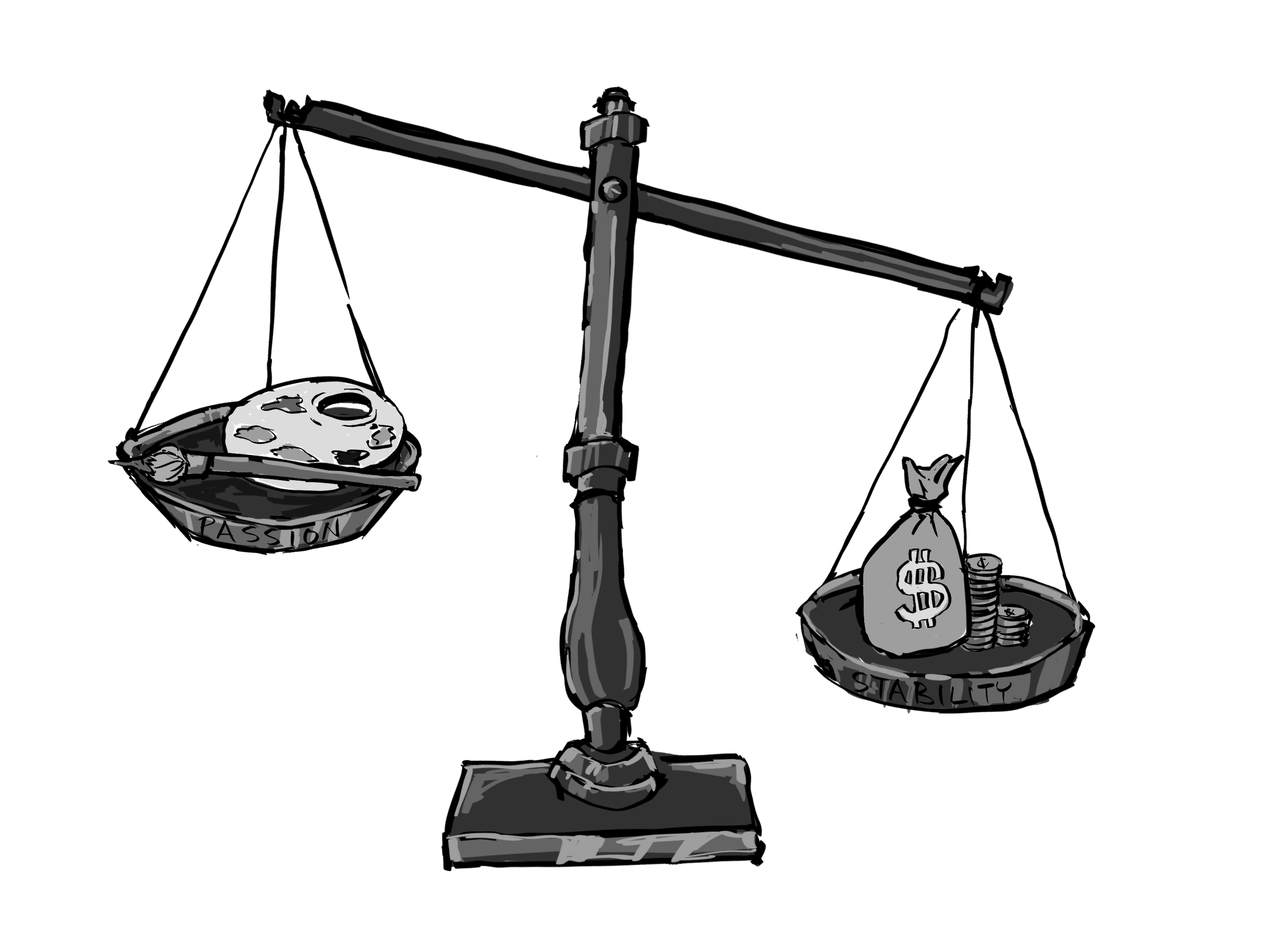It’s time to let go of your passions
College is a looming threat facing many of Samo’s student’s right now, especially when it comes to choosing a major. What should you study? Should you follow your passion? But, what if your passion is art, a lifestyle previously known to be unstable. The question arises - is it worth it to risk it in hopes of fulfilling a dream? Not really.
Art by Kayman Mangan
Unfortunately, our society follows the idea that passion is everything. It is our purpose, our reason. Everyone says to follow your passion! But, why? If your passion is going to wear you down, force you into a situation in which you're struggling to pay off extraordinary amounts of college debt, pay rent, pay for utilities, simply pay to be alive, why follow them? The arts, drawing, writing, painting, etc, are known for being exceptionally unstable. Those who pursue them in college face significantly high rates of unemployment or underemployment- meaning they don’t work full time and/or aren’t paid enough for training or financial needs. According to VisualCapitalist, liberal art majors have the second most unemployment- at 7.9%- and 56.7% underemployment rate. Commercial art and graphic design, one of the most sought out art majors, still has a 6.0% unemployment and 33.7% underemployment rate.
Not many people can enjoy art when you're doing it to survive- following your passion should not be so heavily emphasized. People work for the purpose of survival, for a house, for running water, for food, not some kind of emotional fulfillment that might fizzle away over time.
Turning your passion into a job limits what you can create, especially in a workplace setting. It limits time, crunches hours into minutes and ultimately drains the artists. Even at a college level, many art students lose passion for creating because of the harsh limits put upon them by the teachers. It’s almost like a curse- art students run to college with a bright future in mind, only to fizzle away, like a flame, as their burning passion turns to embers under the stress of making just one more piece. One more piece. Too little time.
But, this doesn’t mean passion should be completely overruled. Instead, one can turn their passion into a hobby- stretching it outside of a job. Unlike many other passions such as math or environmental science, the arts can easily be done outside of a job. At home alone, or in class- art can exist outside of a professional sphere.Not following your passion as a job does not mean giving it up. Free time exists. Find a job you're at least alright with and draw, paint, write in your free time. Don’t make yourself suffer when you have more time.
